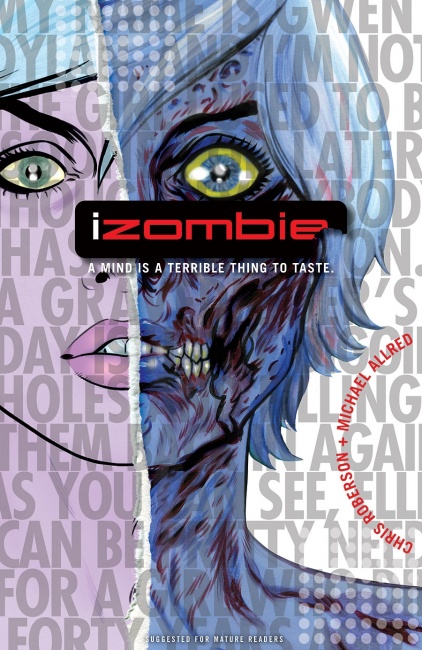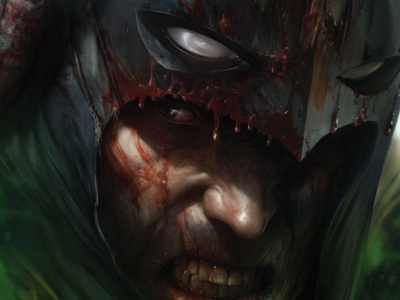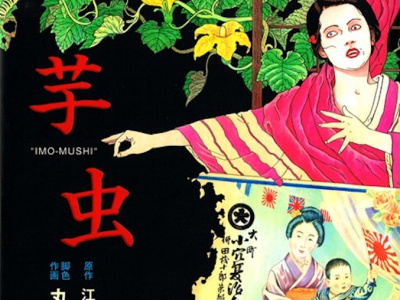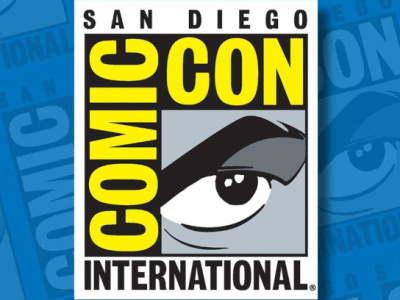At the risk of belaboring a subject that everyone is rapidly getting sick of, I have one more point to make on the controversy around David Gabriel’s comments at the retail summit (see "Marvel's David Gabriel on the 2016 Market Shift"). Over on the ICv2 Pro site (currently in closed Beta), retailer Daniel McAbee posted a great comment to my original post from Monday (see "Marvel's Problem Isn't Diversity"), in which he wrote, in part (quoted with permission):
"[The] problem with Marvel's Diversity push [is] it isn't really a creative push at all. Sacrificing established characters to a 'diversity' push isn't really doing anything at all to achieve the goal of a wider audience. If you want diverse characters, then create diverse characters and stop lazily selling off your current characters. The... problem is that a big portion of comic buyers are life-long buyers. They want good storytelling and characterization, but they also want continuity. Things have to actually matter and have consequences in order to get the readers to care. When you continually [sacrifice] characters to the diversity initiative, you just weaken your characters and in the long-haul, you weaken your line. Bruce Banner is the Hulk. Making someone else a 'Hulk' isn't new anymore and it isn't driving sales - it's hurting them..." [emphasis added]
McAbee is absolutely right. The continuity issue irritates long-time readers and neither Marvel nor DC has handled that consistently well from a story perspective, regardless of the whole diversity debate. It's the constant shuffling of faces underneath the masks that's the problem for many comic shop regulars, not necessarily the fact that those new faces represent different genders/ethnicities.
He poses a perfectly reasonable solution: create diverse characters. That way you don’t have to keep messing with the canonical originals, but you can still expand the universe to make others feel welcome. After all, when Archie wanted a gay character, they didn’t retcon one of the original gang: they added Kevin to the mix, with his own unique story. Problem solved.
Except for one thing.
It turns out that screwing over creators for 80 years has consequences. "Creating" something new isn’t just something that happens. It requires a creator, or creative team, and they have to be good if you want the character they create to be any good.
So how many great creators out there want to come up with the next Deadpool, Harley Quinn or Wolverine and hand them over to Marvel or DC in exchange for a nice page rate and some vague promises about "participation in future revenue streams?" Anyone? Buehler?
Marvel and DC fought and won lots of battles with creators claiming rights over characters that they, um, created under work-for-hire deals and the like; the companies got to keep all the money for themselves and their shareholders when those characters made it big. They lost a few too, but not without a bloody fight.
But those battles came at a cost. They made it very unlikely that anyone under a work-for-hire deal – which is to say, anyone working on a core-universe, in-continuity title, or any property whose trademark was already owned by the company – was going to knowingly come up with original characters that could end up getting trademarked and exploited by the company in merchandise and other media. Is it that surprising that there hasn’t been a major new corporate-owned character created in the past 25 years?
That’s not to say creativity ceased, but new characters tended to end up in a different swim lane than the corporate-owned cast.
For example, Chris Roberson initially pitched Vertigo a new series that would use the old 1970s character Gravedigger, but when artist Michael Allred balked at doing a work-for-hire project (which the series would have been unless the team licensed the trademark from DC), Roberson revised it into iZombie, which the company accepted as a standalone creator-owned title. That one worked out alright for the creators, but those workarounds don’t solve the bigger problem related to core continuity.
Churning a stagnant pool. With the "create something new" option largely off the table in terms of originally-named, costumed characters, and most of the legacy characters in their IP portfolios consisting of straight white men created for a less-woke world, the only real solutions to address diversity are to dust off a disused character or revamp a front-liner.
DC, with a seemingly endless catalog of characters stretching from the dawn of the Golden Age through myriad acquisitions from defunct publishers, tends to go the route of updating an obscure old property. That’s a low risk strategy, but it has downsides too, because the second-stringers were second-stringers for a reason. For example, one of the company’s better characters of the past 20 years, who adds a strong black male presence to their lineup, is stuck with the world’s stupidest superhero name: Mr. Terrific. On one hand, it’s not like there are a whole raft of "classic Mr. Terrific" fans out there to get riled up about it. On the other hand... Mr. Terrific?
Nevertheless, from an IP point of view, it’s much better for DC to wrap a fresh concept in a moldy old trademark from the 1940s than open the whole can of worms that goes with having to share, or contest, credit and revenue for a new creation.
Marvel plays the same game, but at a higher-stakes table. They didn’t just reskin second tier trademarks like Ms. Marvel for the 21st century; they extended the treatment to the crown-jewel properties: Spider-Man, Thor, Iron Man, Hulk and Captain America.
The payoff for those bets was a ton of media coverage, mostly positive, and a lot of fresh stories featuring appealing new personalities. But as McAbee points out, you can’t mess with characters like that without pissing off some long-time fans. And it doesn’t help when that same super-traditional readership thinks you are tampering with their nostalgic memories and continuity for the sake of pushing a "political agenda."
The dilemma in a nutshell. The inability to create new in-continuity characters creates a zero-sum game for DC and Marvel. Either stick with the tried-and-true straight white-guy versions of the pantheon and alienate new readers, or screw around with iconic characters and alienate older ones.
Strategy A works in the Direct Market but not the wider world; strategy B works in the media, the bookstores and in the blogs, but causes problems in the comic shop. Considering that the direct market offers habitual high-volume readers, zero risk and high profits for publishers, which one do you think they will go with when sales start to spiral downward?
It may seem like a no-win situation, but it’s worth remembering this is only a problem because Marvel and DC insist on retaining complete control and ownership of their core IP. They could bring a flood of original new characters of every race, creed, gender and color to their universes to fight alongside the familiar versions of their iconic characters if they were willing to share the fruits of success with the creators of those characters.
But that’s not how they roll, so creators take their paychecks farming on the plantations, then take their original ideas elsewhere. And Marvel takes its lumps on the sales charts for its stale ideas, and then in the media for trying to make the best of a bad situation of its own design.
The opinions expressed in this column are solely those of the writer, and do not necessarily reflect the views of the editorial staff of ICv2.com.
Rob Salkowitz (@robsalk) is the author of Comic-Con and the Business of Pop Culture.
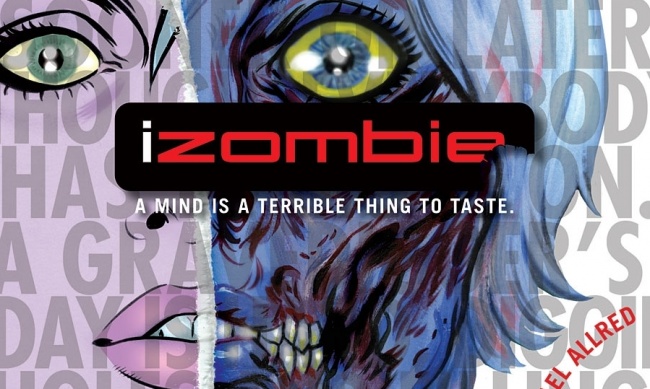
Column by Rob Salkowitz
Posted by Rob Salkowitz on April 5, 2017 @ 2:46 pm CT
MORE COMICS
From Dynamite Entertainment
August 8, 2025
Here's a preview of Space Ghost #1, published by Dynamite Entertainment.
Dark, Erotic Manga Based on Short Story by Edogawa Rampo
August 8, 2025
Maruo brings his signature “erotic grotesque” style to a dark tale by writer Edogawa Rampo.
MORE COLUMNS
Column by Jeffrey Dohm-Sanchez
August 7, 2025
ICv2 Managing Editor Jeffrey Dohm-Sanchez lays out the hotness of Gen Con 2025.
Column by Rob Salkowitz
August 5, 2025
In this week's column by Rob Salkowitz, he looks at the industry's biggest show, held in the midst of some existential issues.




